This article was co-authored by Kelli Miller, LCSW, MSW. Kelli Miller is a Psychotherapist based in Los Angeles, California. Kelli specializes in individual and couples therapy focusing on relationships, depression, anxiety, sexuality, communication, parenting, and more. Kelli also facilitates groups for those struggling with alcohol and drug addiction as well as anger management groups. She is the author of “Professor Kelli’s Guide to Finding a Husband” and the award-winning and best-selling book “Thriving with ADHD”. Kelli co-hosted an advice show on LA Talk Radio and is a relationship expert for The Examiner. She received her MSW (Masters of Social Work) from the University of Pennsylvania and a BA in Sociology/Health from the University of Florida.
There are 10 references cited in this article, which can be found at the bottom of the page.
This article has been viewed 99,913 times.
Leaving a toxic situation can be confusing and scary, and it’s okay to seek help from friends or family if you need it. These kinds of relationships tend to be full of wild emotions, and freeing yourself from that can be tough. However, it is totally possible to break the cycle. Even if you don’t seek assistance from someone else right now, rest assured that we’ve always got your back. We’ll walk you through the process—from ending the relationship and getting some space, to healing in the wake of what has happened.
Steps
Ending the Relationship
-
1Remind yourself why the relationship must end. From the start, you need a strong argument for ending the relationship, so you can make sure you follow through. Get real with yourself and take some time to write out all the reasons this relationship is toxic and needs to end.[1]
- One of the most important reasons to leave a toxic relationship is because you deserve better. In addition, the relationship may be preventing you from growing, isolating you from others, or becoming borderline or full-on abusive.
-
2Rehearse the conversation. Go over what you want to say to the person beforehand. This will help you to appear more confident when you have the talk.[2]
- You can rehearse in front of a mirror or with a friend.
- Rehearsing can help you feel more confident when you speak, but keep in mind the conversation may go differently than you rehearsed.
Advertisement -
3Let the person know you want to talk. Give the person advance notice that you want to have a conversation and ask them when they are available to talk. Depending on how safe you feel, consider reaching out in person, over the phone, or via text.[3]
- You might say, "Hey, I need to talk to you about something important. Do you have time to get together?"
-
4Choose where to have the talk. Have a face-to-face discussion with the person, if possible. Set the location based on how you expect the conversation to go. For example, if the person is likely to become angry, have the conversation in a public place.[4]
- If this is an abusive relationship, have the talk by phone or through video call for your safety.
-
5Be clear and straightforward about what you want. Be direct about what's not working in the relationship and your decision to end it.[5]
- You might say something like, “I don't think we're good together. We breakup and makeup all the time and I have started to alienate other people who are close to me. I want to end it.”
- Another option is to say something like, "Our relationship is not working for me. I've thought it through, and I want to end it."
-
6Hear the other person out. There's a good chance the other person will have quite a mouthful to say. Listen to what they have to say as long as their response is free of insults or threats.[6]
- If they try to convince you not to end it or some other tactic, simply restate your decision. Be as clear and concise as possible.
- If they become angry or argumentative, say “I didn't come here to argue. I'm leaving. Please don't follow me.”
Maintaining the Breakup
-
1Make your limits clear. If this person is toxic, they may not be accepting of the breakup. Be clear with the person and tell them that you don't want them in your life anymore.[7]
- For example, if they drop by your home or call you over the next few days, remind them of your limits.
- Say something like, “I told you I don't want to see you anymore. Please do not come to my house or try to contact me again.”
-
2Cut off all contact. Follow through with your decision to end the relationship by breaking off all communication with the person. Delete their number and email from your phone. Unfollow them on social media.[8]
- If you frequent some of the same places, change your routine for a while so that they get the message.
-
3Be on the lookout for manipulative tactics. Toxic people can be manipulative and controlling, so you need to stay alert. The person may try to win you back with good behavior or even ruin your reputation so that they are the only person you have left. Don't allow their manipulations to pull you back in.[9]
- The best way to minimize any further damage is to cut ties completely. Don't answer any calls, texts, emails, or other requests for contact.
-
4Seek support and accountability from loved ones. If you're having trouble staying away from the toxic person, call in reinforcements. Explain the situation to a supportive friend or family member and ask them to help you stay accountable.[10]
- For instance, if you get a text from the person, call your friend right away. They can “talk you down” from responding or keep you distracted.
-
5Call the police if necessary. If the person continues to contact or visit you and makes you feel unsafe in any way, contact the authorities. You might have to file for a restraining order against the person.[11]
- A restraining order limits the person from contacting you or coming within a certain distance of your home and other social environments like work or school.
Healing Emotional Wounds
-
1Talk about what happened to someone you trust. Bottling up your feelings about the toxic relationship lets the other person win because it keeps you isolated. Open up about what happened and how you are feeling about everything.
- Confide in a close friend or family member. Tell them how you are feeling and seek comfort.
- If you have specific requests about how they can support you, let them know.
-
2Replace that relationship with a positive one. To truly move on and heal from a toxic relationship, you must open your heart to positive, healthy relationships. Look over your existing connection and find ways to deepen your relationship with people who make you feel good.
- You might also make new friends by joining a club or organization or participating in a support group.
- Remember that it is okay to give yourself some time to heal. Don't jump right back into dating until you feel ready.
-
3Adopt a self-care practice. You probably poured a lot of yourself into the toxic relationship. Now is the time to pour all that love and compassion back into yourself. Build a self-care routine that focuses on nurturing your mind, body and spirit.[12]
- Treat yourself to healthy, nutritious meals. Do soothing exercises like yoga or expressive dance. Take warm baths with scented oils or bubbles. Or take long walks in nature.
- You might also heal and care for yourself by writing your thoughts and feelings about the experience in a journal.
- Taking a trip can also be a great way to take care of yourself. It will give you a change of scenery and routine. Consider visiting a friend who lives in a different city.
-
4Discuss your relationship patterns in therapy. If you found yourself in a toxic relationship, you may have an insecurely attached relational style that stems from childhood. This style may have made it hard for you to see toxic behavior for what they were. In therapy, you can become conscious of how childhood experiences impact your current relationships and start to heal those wounds.[13]
- Ask your family doctor to recommend a professional therapist in your area.
Expert Q&A
-
QuestionWhat are the signs of a toxic relationship?
 Kelli Miller, LCSW, MSWKelli Miller is a Psychotherapist based in Los Angeles, California. Kelli specializes in individual and couples therapy focusing on relationships, depression, anxiety, sexuality, communication, parenting, and more. Kelli also facilitates groups for those struggling with alcohol and drug addiction as well as anger management groups. She is the author of “Professor Kelli’s Guide to Finding a Husband” and the award-winning and best-selling book “Thriving with ADHD”. Kelli co-hosted an advice show on LA Talk Radio and is a relationship expert for The Examiner. She received her MSW (Masters of Social Work) from the University of Pennsylvania and a BA in Sociology/Health from the University of Florida.
Kelli Miller, LCSW, MSWKelli Miller is a Psychotherapist based in Los Angeles, California. Kelli specializes in individual and couples therapy focusing on relationships, depression, anxiety, sexuality, communication, parenting, and more. Kelli also facilitates groups for those struggling with alcohol and drug addiction as well as anger management groups. She is the author of “Professor Kelli’s Guide to Finding a Husband” and the award-winning and best-selling book “Thriving with ADHD”. Kelli co-hosted an advice show on LA Talk Radio and is a relationship expert for The Examiner. She received her MSW (Masters of Social Work) from the University of Pennsylvania and a BA in Sociology/Health from the University of Florida.
Psychotherapist Any kind of abuse is a surefire sign. Physical abuse is an obvious sign, but emotional or verbal abuse count as well. If you find yourselves avoiding alcohol because the two of you tend to get into it whenever someone drinks, that can be another sign of toxicity. This is the kind of thing where you should trust your gut. If something feels terribly wrong, it probably is.
Any kind of abuse is a surefire sign. Physical abuse is an obvious sign, but emotional or verbal abuse count as well. If you find yourselves avoiding alcohol because the two of you tend to get into it whenever someone drinks, that can be another sign of toxicity. This is the kind of thing where you should trust your gut. If something feels terribly wrong, it probably is. -
QuestionWhat does it mean if I'm always thinking about another guy?
 Kelli Miller, LCSW, MSWKelli Miller is a Psychotherapist based in Los Angeles, California. Kelli specializes in individual and couples therapy focusing on relationships, depression, anxiety, sexuality, communication, parenting, and more. Kelli also facilitates groups for those struggling with alcohol and drug addiction as well as anger management groups. She is the author of “Professor Kelli’s Guide to Finding a Husband” and the award-winning and best-selling book “Thriving with ADHD”. Kelli co-hosted an advice show on LA Talk Radio and is a relationship expert for The Examiner. She received her MSW (Masters of Social Work) from the University of Pennsylvania and a BA in Sociology/Health from the University of Florida.
Kelli Miller, LCSW, MSWKelli Miller is a Psychotherapist based in Los Angeles, California. Kelli specializes in individual and couples therapy focusing on relationships, depression, anxiety, sexuality, communication, parenting, and more. Kelli also facilitates groups for those struggling with alcohol and drug addiction as well as anger management groups. She is the author of “Professor Kelli’s Guide to Finding a Husband” and the award-winning and best-selling book “Thriving with ADHD”. Kelli co-hosted an advice show on LA Talk Radio and is a relationship expert for The Examiner. She received her MSW (Masters of Social Work) from the University of Pennsylvania and a BA in Sociology/Health from the University of Florida.
Psychotherapist If you're constantly comparing your current relationship to a past relationship, or you're always daydreaming about being with someone else, it's a sign that something is seriously wrong. It may not necessarily mean your relationship is toxic or that you need to break out, but there is some kind of underlying problem that needs to be addressed.
If you're constantly comparing your current relationship to a past relationship, or you're always daydreaming about being with someone else, it's a sign that something is seriously wrong. It may not necessarily mean your relationship is toxic or that you need to break out, but there is some kind of underlying problem that needs to be addressed.
References
- ↑ http://www.lifehack.org/articles/communication/7-reasons-why-you-need-let-toxic-relationship.html
- ↑ https://www.psychologytoday.com/blog/resolution-not-conflict/201201/breaking-is-hard-do-so-heres-6-step-how
- ↑ https://www.webmd.com/sex-relationships/features/how-break-up-gracefully
- ↑ https://www.webmd.com/sex-relationships/features/how-break-up-gracefully
- ↑ https://www.psychologytoday.com/blog/resolution-not-conflict/201201/breaking-is-hard-do-so-heres-6-step-how
- ↑ http://m.kidshealth.org/en/teens/break-up.html?WT.ac=#kha_31
- ↑ https://www.mindbodygreen.com/0-13176/6-steps-to-set-good-boundaries.html
- ↑ https://www.psychologytoday.com/blog/liking-the-child-you-love/201412/three-steps-getting-out-toxic-relationship-0
- ↑ https://blogs.psychcentral.com/knotted/2017/04/5-reasons-it-can-be-so-hard-to-leave-a-toxic-relationship/
- ↑ https://www.psychologytoday.com/blog/tech-support/201612/8-strategies-dealing-the-toxic-people-in-your-life
- ↑ http://www.loveisrespect.org/legal-help/restraining-orders/
- ↑ https://au.reachout.com/articles/6-strategies-for-self-care
- ↑ https://blogs.psychcentral.com/knotted/2017/04/5-reasons-it-can-be-so-hard-to-leave-a-toxic-relationship/
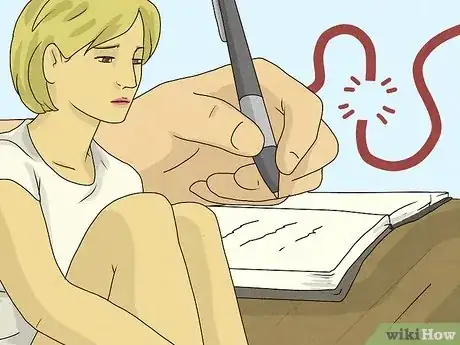
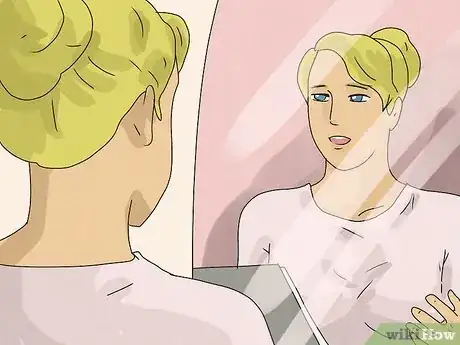
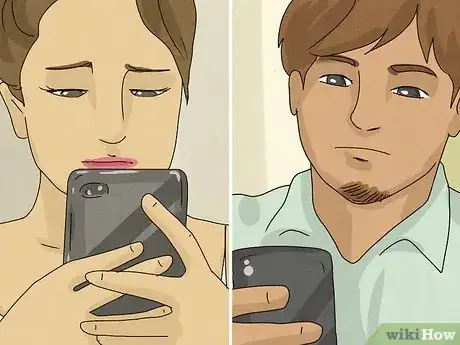
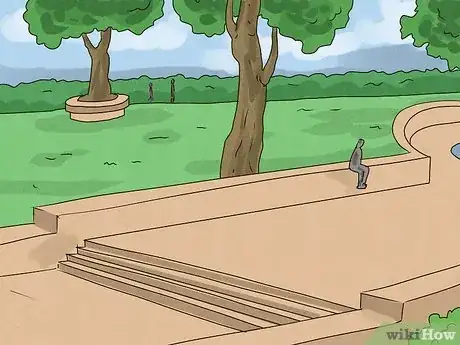
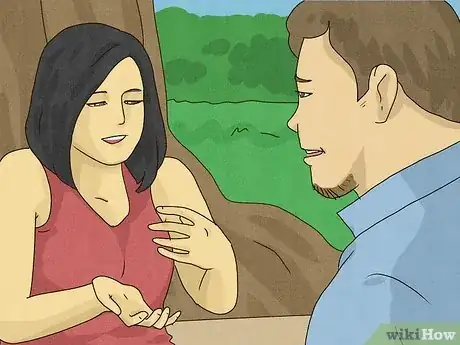
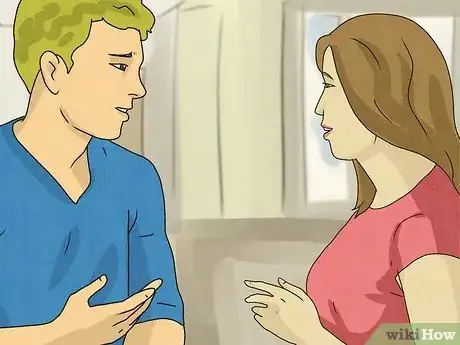
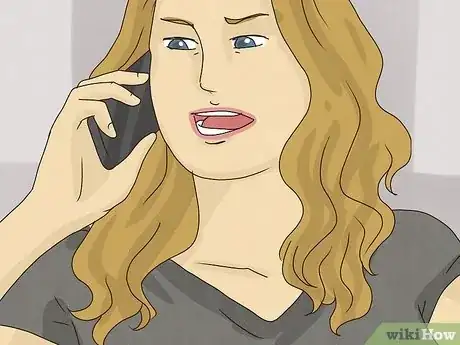
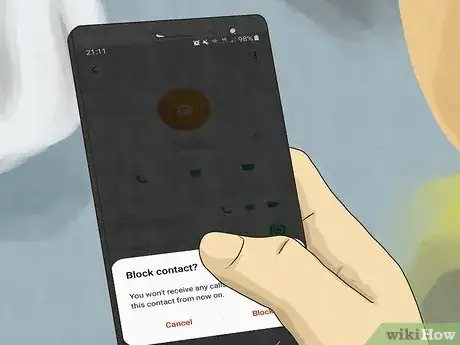
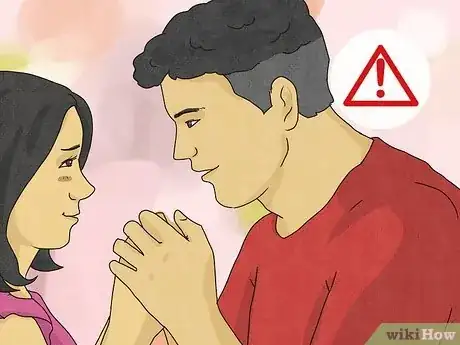
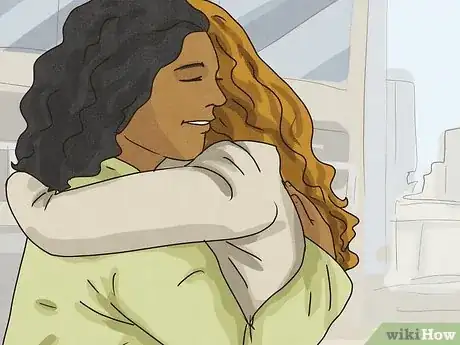
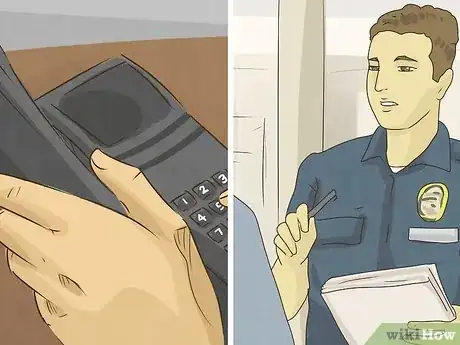
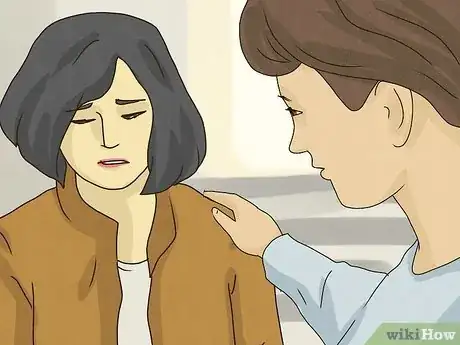
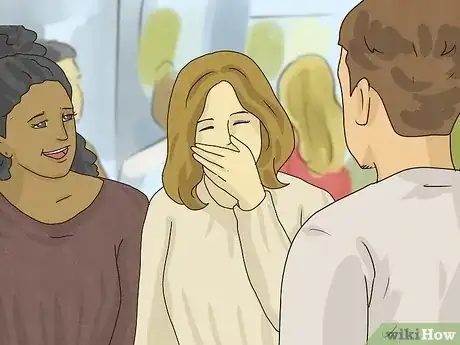

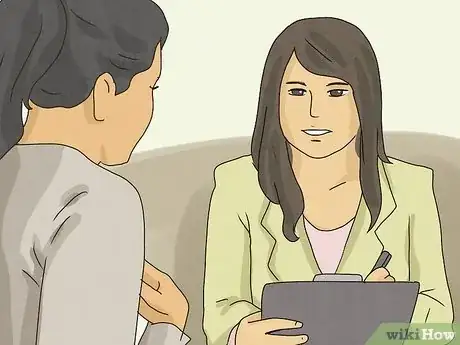






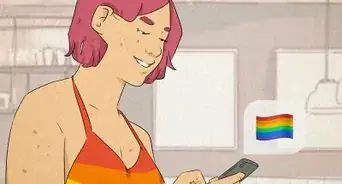

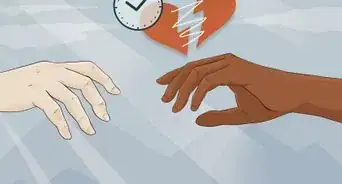

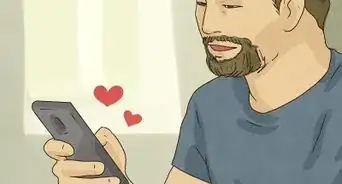


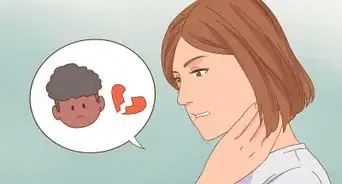















































Medical Disclaimer
The content of this article is not intended to be a substitute for professional medical advice, examination, diagnosis, or treatment. You should always contact your doctor or other qualified healthcare professional before starting, changing, or stopping any kind of health treatment.
Read More...